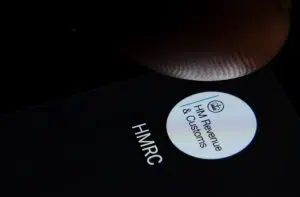
Secondly, you may be personally liable for the debts of your company if you are a director or shareholder. This means that HMRC could take legal action against you to recover the money owed.
Finally, if you do close your company, you need to inform HMRC and make arrangements to pay off any outstanding debts. If you don’t do this, you may be liable for prosecution. So if your company owes money to HMRC, it’s important to seek professional advice before taking any action
Closing a limited company with HMRC debts
If your limited company owes money to HMRC, there are a few things you need to do before you can close it down. First, you’ll need to settle your outstanding debts. This can be done by paying the full amount owed, or by entering into an arrangement with HMRC to pay off the debt over time.
Once your debts have been settled, you can then formally close your company by contacting Companies House and submitting the appropriate paperwork.
Depending on your circumstances, it may also be necessary to notify HMRC that you’re closing your company. If you’re not sure what steps you need to take, it’s always best to seek professional advice before taking any action.
Should your business be unable to repay the amount owed to HMRC, but you wish to close the company you will need to carry out a Company Voluntary Liquidation (CVL).
This formal insolvency process can protect you from allegations of misconduct, and also offers other benefits to directors. When you carry our a CVL any debts that remain unpaid once the realisation of assets has taken place are written off, this is unless they are classed as secured debts or if you have offered a personal guarantee to the lender.
The problem with HMRC debts
Debts to HMRC can often be one of the main causes of financial problems for businesses. When a business is unable to pay its debts to HMRC, it may be compulsory liquidated by the court. This means that the business will be wound up and its assets sold off in order to pay HMRC what it is owed.
However, this is not always the best solution for the business, as it can often mean that valuable assets are sold for less than their worth. In addition, the owners of the business may be personally liable for the debt, which could have a serious impact on their personal finances as well as undergoing an investigation by the liquidator.
As a result, it is important to consider all of your options before deciding whether or not to enter into liquidation. What is the issue if you try to close down a company with HMRC debts via voluntary strike off, this is also another common method of business closure.
HMRC debts and company dissolution
Many businesses incur debts to HMRC (Her Majesty’s Revenue and Customs) during the course of their operations. While some businesses are able to repay these debts, others find themselves struggling to keep up with the payments. In extreme cases, a business may be forced to dissolve in order to avoid paying HMRC debts.
Dissolution is a process whereby a company is officially stuck off the companies register, this way is not appropriate for companies in debt. If you try to dissolve your company at Companies House, a formal objection by HMRC acting as a creditor of the business will be filed.
While dissolution may seem like the best option for a struggling business, it should be noted that it can have serious consequences. For example, this can include being disqualified as a director for up to 15 years by the insolvency service and their directors may be held personally liable for the company’s debts.
Benefits of a CVL when have HMRC debts
A creditor voluntary liquidation (CVL) is a process whereby a company is wound up by its creditors. This type of liquidation is usually used when a company is insolvent, meaning that it is unable to pay its debts.
A CVL can be an effective way of dealing with an insolvent company, as it allows creditors to receive some payment, while avoiding the costs and delays associated with a compulsory liquidation.
In addition, a CVL can help to preserve the value of the company’s assets, as they are sold off by the liquidator. As such, a CVL can be a beneficial solution for both creditors and shareholders.
- Process is carried out by a licensed insolvency practitioner.
- Less likely to have serious allegations of directors misconduct filled against you.
- Company is closed down in accordance to the insolvency act.
Read more: HMRC threatening bailiffs
Conclusion
Closing a company with HMRC debts is often a difficult and stressful process that requires a lot of diligence. It’s important to respond promptly to any communication from HMRC, pay outstanding debts quickly and correctly, and follow the appropriate steps for closing the business. At every stage during this process, it’s essential to stay in contact with HMRC, so that everyone involved is kept informed of progress.
It’s also important to ensure all employees are informed in a timely manner regarding their own affairs. Finally, when the process is complete, confirm the closure with HMRC along with filing any finalized documents and an official tax return.
If you are suffering from HMRC debt and wish to close down your company, please complete the online enquiry form or contact one of our team on the number above.
Read more: HMRC have issues a winding up petition, what are my options
With over three decades of experience in the business and turnaround sector, Steve Jones is one of the founders of Business Insolvency Helpline. With specialist knowledge of Insolvency, Liquidations, Administration, Pre-packs, CVA, MVL, Restructuring Advice and Company investment.
